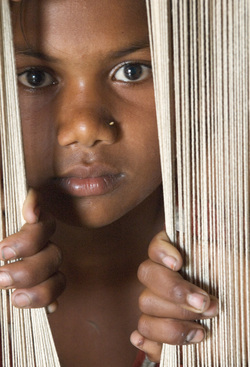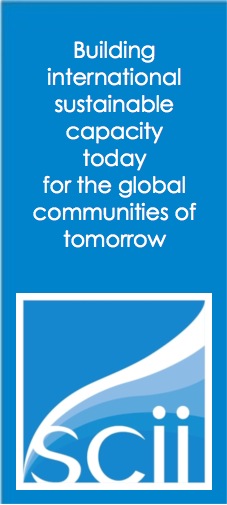Sustainable Development Engagement

The SCIInstitute is actively engaged in the Post-2015 development agenda revolving around the Sustainable Development Goals (SDGs). One of the main outcomes of the Rio+20 Conference (June 2012) was the agreement by member States to launch a process the SDGs which will build upon the Millennium Development Goals (MDGs). It was decided establish an "inclusive and transparent intergovernmental process open to all stakeholders, with a view to developing global sustainable development goals to be agreed by the General Assembly". The Rio+20 outcome document The Future We Want resolved to establish an inclusive and transparent intergovernmental process on SDGs that is open to all stakeholders with a view to developing global sustainable development goals to be agreed by the UNGA.
Sustainability is a fundamental global value and a societal responsibility for the 21st century. We cannot longer avoid promoting a development agenda that is economic viable, environmental sustainable and socially inclusive. The SCIInstitute contributes to these conversations by centering the economic, environmental and social pillars of sustainability on institutional capacity development. If we are to move beyond a general vague agreement to the values of sustainability into a concrete sets of attainable and measurable goals we need to focus on sustainable institutional capacity development. It is expected that the current world’s population of 7 billion will increase to 9 billion by 2050. The demand for diminishing natural resources is growing while income gaps are widening worldwide. Sustainable development is the necessary paradigm calling for a decent standard of living for everyone today without compromising the needs of future generations. Read more >> Supporting Capacity in Somalia

The Sustainable Capacity International Institute, along the World Engagement Institute, the National Strategy Forum and the Somalia Strategy Forum have organized the Chicago Conference on Somalia: A Comprehensive Strategic Plan for Somalia’s Long-Term Social and Economic Development. Somalia is at a crossroads. Decades of war, famine and neglect have left it bereft of focused development and visionary leadership. Meanwhile, the International Community has too often approached Somalia with a state-centric, top-down, and often overly kinetic approach to peace and institution building. What has been missing is concerted outreach to, and utilization of, grass-roots – Somali-led – civil society organizations to help foster the long-term social and economic security of Somalia. The Somali Diaspora, supported by the international community has organized this forum to initiate the process of developing a long-term – Somali focused/Somali-led – strategic planning mechanism for building a prosperous and peaceful future in Somalia. The conference began a process of empowerment and grass-roots support for a comprehensive strategic planning process benefiting Somalia. The conference focused on the Constitutional process, sustainable development and human security in Somalia and the Horn of Africa region. The Chicago has served as a platform and a catalyst for developing comprehensive, long-term, “bottom-up,” strategies for sustainable agricultural development, food security, rule of law, economic development, inclusive education, health care and governance capacity. The outcomes of the conference has been the identification of the necessary pre-conditions for enhancing sustainable capacity development in Somalia, as well as extending the conversations that began at the London Conference. Read more >>
Anti-Human Trafficking

The SCIInstitute is collaborating with the World Engagement Institute and scholars from Vietnam, the Balkans and the United States in the design of a comprehensive training on Combatting Human Trafficking. The fights against modern slavery requires preparing competent people and capable organizations. Modern slavery is not just a huge moral issue of the 21st century. It is not just a criminal action, often associated with criminal organizations, drug trafficking, prostitution , child labour and worker's exploitation. It is also a profitable global business that require the awareness, active participation and competent cooperation across borders, sectors and agencies. The training offers a comprehensive learning through case studies and experts across various fields. It is designed to prepare post graduates and legal, law enforcement officers, community leaders and NGO professionals to prevent human trafficking along with detecting and punish criminals, protecting the victims and providing support to transition into society. The training centers on legal, practical and intercultural strategies for preventing, protecting, prosecuting and partnering to combat the trafficking of human beings for different reasons (e.g., sexual exploitation or forced labor) as recognized by: the United Nations Office on Drugs and Crimes (UNODC); the U.S. Trafficking in Persons (TIP) Report; the European Union/European Commission; and various international nongovernmental organizations (INGOs). Training participants will learn directly from an outstanding team of international experts, legal advocates, governmental officials, enforcement officers, and women's rights NGOs. Program instructors are experienced faculty from American, European and Southeast Asian academic institutions. Learn more >>
Vietnam Partnerships

On July 13, 2011 the Sustainable Capacity International Institute signed a Memorandum of Understanding (MOU) with the Journal Law and Development of Vietnam Lawyers Association and is exploring cooperative projects with the School of Law at Vietnam University in Hanoi. In coordination with the World Engagement Institute and other collaborators, the plan is contributing to Vietnam’s commitment on combating human trafficking through conferences and educational projects involving local NGOs and other international partners. The MOU states a general agreement for co-operation in the exchange of administrative and professional staff, exchange of researchers, joint organization of conferences, seminars, courses, and study tours, joint research, education and institutional development projects, including applications for governmental and foundation funding and other forms of organizational co-operation of mutual interest.
|
|
The Sustainable Capacity International Institute (SCII or SCIInstitute) is a European based international non-governmental organization registered in Italy as a nonprofit organization for social benefit (ONLUS). SCIInstitute provides capacity development services for sustainable international development in transitional and post-conflict countries.
|
Copyright © 2013-2018 Sustainable Capacity International Institute (SCII) - All rights reserved



